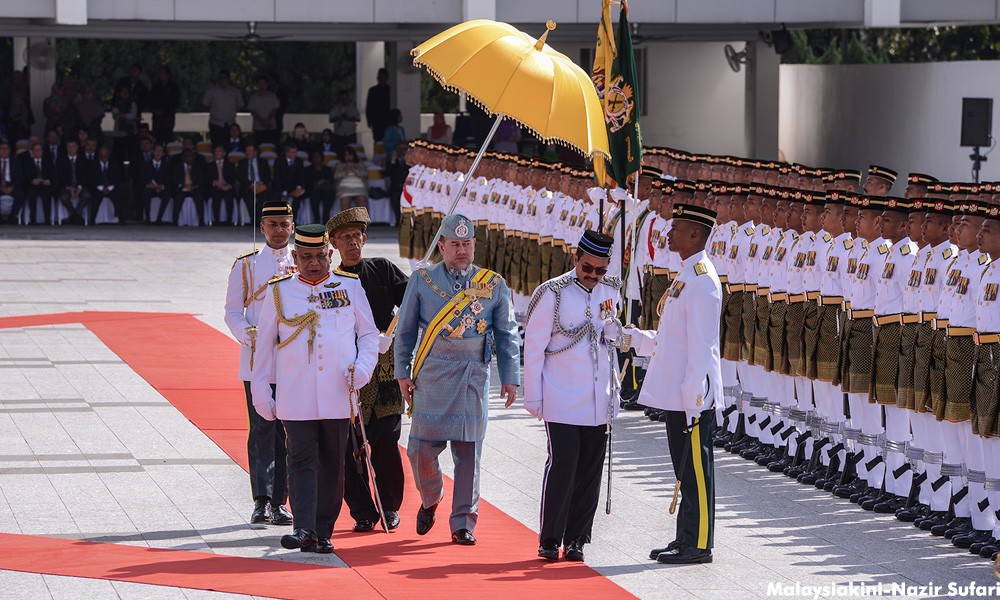
On Friday, we discussed the appropriateness of celebrities commenting on politics and current affairs.
Today, as Season 2 of "The Crown" is upon us, perhaps we can discuss constitutional monarchy and some of the challenges it faces today.
"The Crown" may be particularly relevant as, after all, many constitutional monarchies in the Commonwealth are largely modelled on the British one.
I probably know Peter Morgan’s Queen Elizabeth more than I do the real one, and I have never had the slightest bit of interest in the British monarchy prior to this little TV series.
A persistent theme in Morgan’s large body of work on the monarchy is the place of the institution in ever-evolving modern society, and the challenges monarchs face in maintaining the dignity and purpose of the monarchy.
Checks and balances
Constitutional monarchy evolved over time from absolute monarchy, a time where the monarch’s word was law.
Eventually, forces for democracy in some countries moved societies away from such absolute rule, but chose to maintain royal institutions, having them co-exist with democratic practices.
It is often a subtle balancing act to be sure, but in theory, the crown and the government - the dignified and the efficient, as it were - are institutions that are meant to balance and strengthen one another.
This system works as long as each institution performs its duties correctly, and respects their boundaries diligently.
The rights of the monarch
The most definitive of said boundaries is that the monarchy must always be above politics.
It is the duty of politicians and governments to politick and govern, and it is the duty of the monarch to never interfere with either.
The concept of the dignified and the efficient mentioned above was first written about by British journalist and businessman, Walter Bagehot in 1867 in his enduringly influential treatise on the English Constitution.
Bagehot also wrote at length about the rights of the monarch, with regards to governance - namely the right to be consulted, to encourage, and to warn.
The manner in which Bagehot writes of these rights seems to suggest that said rights are to be executed in a private manner, between monarch and prime minister, and perhaps with the cabinet.
Influencing politics
I could be wrong, but I imagine both Bagehot and current effective and popular constitutional monarchs would be horrified at the idea of a sitting monarch making comments in the press that could be seen to be politically influential.
While the definition of what is or isn’t politically influential will surely be debated by some, I think we can perhaps examine a few cases in which a comment may be one or the other.
For instance, if a queen was to make a public comment in the media about a politician’s character (especially an active one that is currently attached to an active party, and/or one who may be seeking public office), whether positive or negative, such a comment may be construed as being politically influential.
In "The Crown", Queen Elizabeth has a conversation with her grandmother, Queen Mary, about the duty of the monarch to remain neutral.
In this conversation, Queen Mary warns that even a smile or a frown in a particular situation can be construed as undue favour.
If this is so, what more a direct comment on a politician’s character?
Being above politics
I’m not one to idealise our former colonial masters, or somehow compare one monarchy to another.
Perhaps all we can say for now is that the most effective and popular constitutional monarchies existing today are the ones where monarchs have gone to extraordinary lengths to stay above politics.
The phrase ‘above politics’ purposely advocates the notion that there should be some institutions of government that are ‘higher’ than the worldly taint of shifting political winds and endless jostling for electoral favours.
Challenging though it can be on a personal level for monarchs, history suggests that this approach is the one that ultimately best serves both the monarchy and the nation as a whole.
NATHANIEL TAN is more effette than some of his fellow writers. He was thrilled to see Kumar in The Crown’s recent trailer.- Mkini


No comments:
Post a Comment
Note: Only a member of this blog may post a comment.